Last week, I was on a Brexit road show with the UK Euro-parliamentarian Dan Hannan. Hannan, who has written superbly on the Anglosphere and its contribution to Western civilisation, was one of the leading campaigners for Britain to leave the European Union even though it meant putting himself out of a job. His role in our double act was to argue that Brexit gave Britain the freedom again to make its own way in the world through free trade deals with other countries. Mine was to explain how Australia had done them. Obviously, Australia’s deals with China, Japan and Korea owed much to the indefatigability of our then trade minister, Andrew Robb; and the skills of our official negotiators, ably led by Jan Adams, now our ambassador in Beijing. My contribution to our success was first, to set a deadline to conclude discussions that had been meandering along for a decade; second, to ensure that we weren’t side-tracked by peripheral issues such as labour and environmental standards; and third, to ensure the focus and drive from the top without which these deals never come to fruition. Our insight was to grasp that free trade deals are too important to leave to the officials. If you leave it to the negotiators, the negotiations never end. Some of them had already involved up to 20 rounds of talks. Goodwill had been established, issues had been clarified and problems had been crystallised but all that had ever really been decided was the need for another meeting at a suitable venue. The Brexiteers had surprised themselves (and shocked the world) with their against-the-odds win last June. Steadied by the ‘Brexit means Brexit’ resolve-to-get-on-with-it of new Prime Minister Theresa May, the shape of Britain’s future relations with Europe is becoming clearer: as far as Britain is concerned, European goods are likely to enter Britain without tariffs or quotas; Britain will continue to recognise European standards and qualifications; and there will be free movement of people (provided it’s well above minimum wages) for work but not welfare. As far as Europe is concerned, it’s still pretty murky. Many of Europe’s leaders want to punish Britain for its Euro-heresy. They fear that, absent the imposition of heavy costs, other countries might also choose to leave in order to regain control of their own borders and to escape the EU’s regulatory sclerosis. It’s quite possible that Europe might impose tariffs on Britain even though, given Britain’s trade deficit with the EU, Europe has more to lose than to gain. At worst, then, Britain will trade with Europe on the basis of the World Trade Organisation’s rules. This is how Britain already does the 55 per cent of its trade that’s with countries outside the EU. This is the basis on which Australia has done $70 billion a year of trade with Europe for the past four decades. At worst, the City will transact with Europeans on the same basis as New York and Singapore: not optimal perhaps, but do-able. So far, the pre-referendum prognostications of doom have failed to materialise. The stock market is up; investment is up; employment is up – and the pound is down by more than enough to absorb the competitiveness impact of any new tariffs. Back in 1973, post-imperial Britain entered the European Community (as it then was) feeling like a failure. Now, Britain is leaving sure that it’s a success. For some years, it has been the most dynamic big economy in Europe and the fastest growing economy in the G7. If there’s any country that’s entitled to face the future with confidence, it’s the one that’s given the rest of us the common law, the mother of parliaments and a modern world that’s been made in English. Britain is back. Acceptance of Brexit is growing, even among people who voted for the status quo last year. The investment pouring into London has included Australia’s own Westfield. Its massive Stratford centre was a key part of the development associated with the Olympics. A decade ago, this was one of the most blighted urban areas in Britain. Now, it boasts a complex that’s as big and as bright as anything here at home. Well done Westfield and the Lowy family for such a vibrant example of urban renewal that has meant thousands of jobs for people previously on welfare. It was a pleasure and an honour to catch up with two Britons who are purring over their countrymen’s resolve to reclaim the future: Sir Roger Scruton, currently the world’s foremost conservative thinker; and Brigadier Allan Mallinson, historian of the British Army, whose Matthew Hervey novels are a terrestrial partner to Patrick O’Brien’s Jack Aubrey series.
Addressing some 300 Warsaw University students on a Sunday evening was unlike anything here – where no one would have turned up or protests would have made the event impossible. Visits to the Jewish Museum and the Warsaw Uprising Museum were a poignant reminder of man’s inhumanity to man. My advice to the Polish leadership: make your country impregnable. There was another side trip, to Villers-Bretonneux, in northern France, to view progress on the Sir John Monash centre that my government began as part of the Anzac centenary. In 1918, Monash was the last general to be knighted on the battlefield, dubbed the ‘most resourceful’ commander of the Great War. Along with Rupert Murdoch and the inventor of anti-biotics, Lord Florey, Monash is the Australian who’s had the most impact on the wider world. When all is said and done, Gallipoli was a heroic defeat; the Western Front a terrible victory – and we should never let failure overshadow our success.
No chronicle of last week could neglect the passing of Bill Leak. Awoken at 3am London time, my tweet was ‘superb artist, fine mind, brave soul… no one better illustrated the great truth that a picture is worth a thousand words’. Words, alas, are always inadequate at such a time.
Got something to add? Join the discussion and comment below.
Get 10 issues for just $10
Subscribe to The Spectator Australia today for the next 10 magazine issues, plus full online access, for just $10.
You might disagree with half of it, but you’ll enjoy reading all of it. Try your first month for free, then just $2 a week for the remainder of your first year.

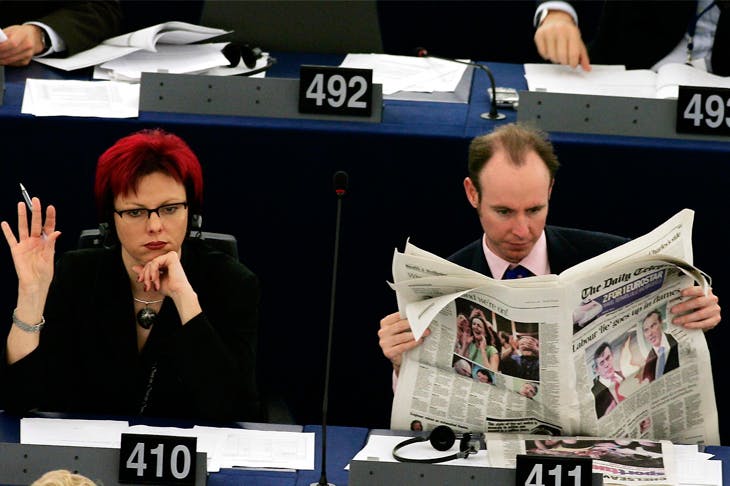
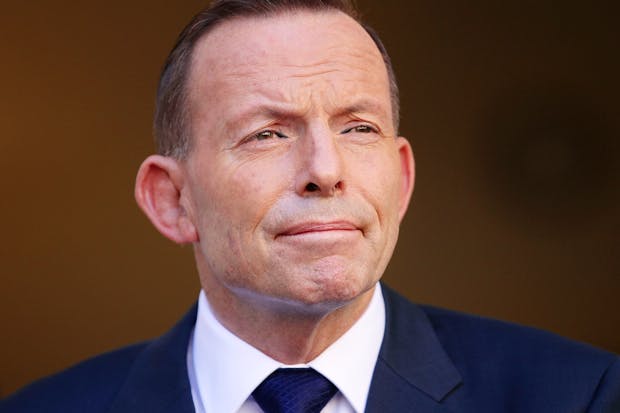
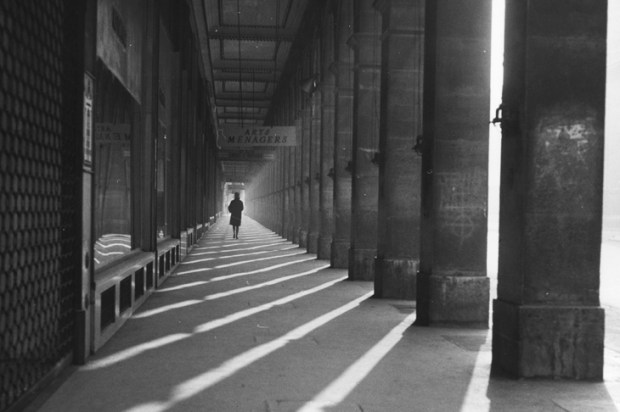
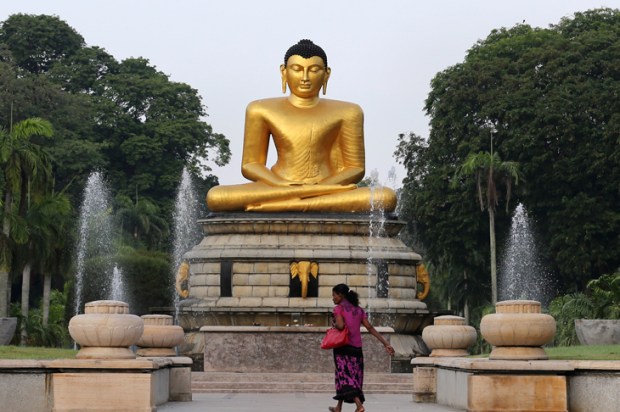
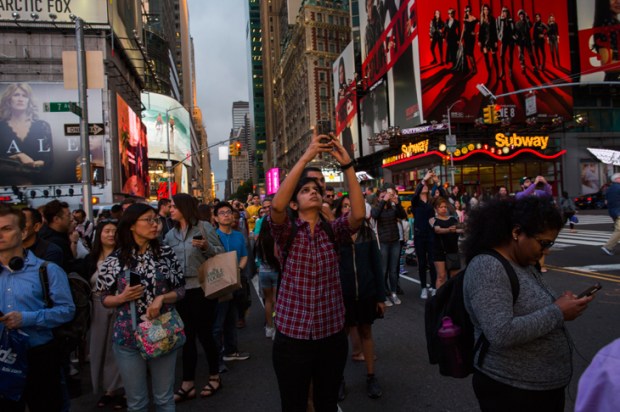
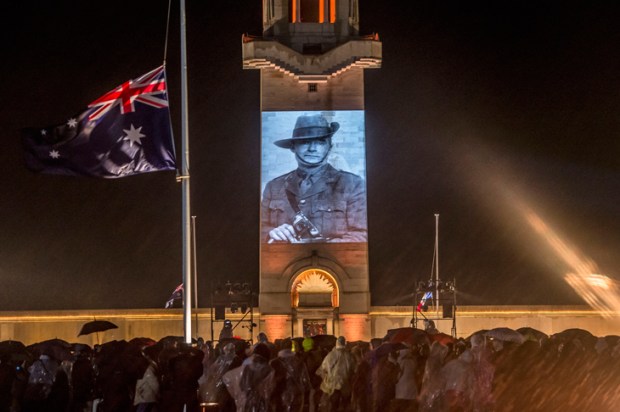







Comments
Don't miss out
Join the conversation with other Spectator Australia readers. Subscribe to leave a comment.
SUBSCRIBEAlready a subscriber? Log in